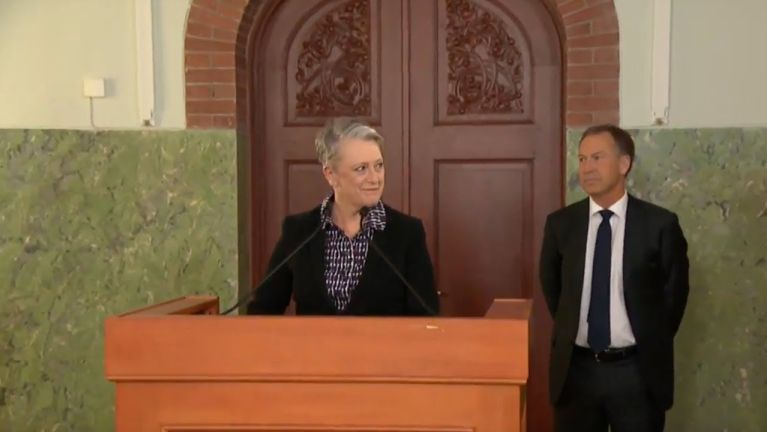Ban nuclear weapons
Germany wants a world without nuclear weapons – but chooses a different road from that of Nobel Peace Prize winners ICAN. These are the reasons.

On 10 December 2017, the International Campaign to Abolish Nuclear Weapons (ICAN) will receive the Nobel Peace Prize in Oslo. When the Nobel Committee announced its decision, Federal Foreign Minister Sigmar Gabriel was one of the first to congratulate. “This award is an expression of recognition for the work done by ICAN and all other organizations working for a nuclear-weapons-free world,” Gabriel said. He added that this showed how aware the Nobel Prize Committee was of the growing danger from nuclear weapons. Germany shares the goal of a world without nuclear weapons, but does not always have the same view on how to achieve it. An overview of differences and similarities.
Does ICAN also exist in Germany?
Yes, the German section was founded in 2014 as a registered, non-profit association and a member of the global ICAN alliance of over 450 organizations in 100 countries. Up to July 2017, ICAN Germany accompanied the process that led to the UN Treaty on the Prohibition of Nuclear Weapons. Now the organization campaigns for countries to sign, ratify and recognize this Treaty – as an instrument for the prohibition and abolition of nuclear weapons.
Dieses YouTube-Video kann in einem neuen Tab abgespielt werden
YouTube öffnenThird party content
We use YouTube to embed content that may collect data about your activity. Please review the details and accept the service to see this content.
Open consent formWhat differences are there between the Federal Government and ICAN?
Germany has not signed the UN Treaty on the Prohibition of Nuclear Weapons – and ICAN has criticized this. However, the Federal Government supports “the commitment to disarmament and the goal of a world without nuclear weapons,” explains Federal Foreign Minister Sigmar Gabriel. But Germany, which itself does not have any nuclear weapons, currently accepts the need to maintain a nuclear deterrent. Unilateral disarmament initiatives seem too unpredictable. 122 states have signed the Treaty on the Prohibition of Nuclear Weapons, but they do not include any of the permanent members of the UN Security Council – China, France, Great Britain, Russia or the USA.
What is Germany doing in the field of disarmament?
The Federal Government is collaborating with eleven other non-nuclear-weapon states in the Non-Proliferation and Disarmament Initiative (NPDI), pushing for progress on nuclear disarmament in a dialogue with the permanent members of the UN Security Council. Together with Canada and the Netherlands, Germany has also initiated a process which, it is hoped, will lead to negotiations on prohibiting the production of fissile materials. In contrast to the Prohibition Treaty, the permanent members of the UN Security Council are involved in this process.

